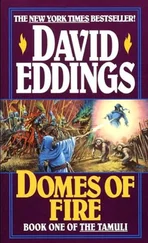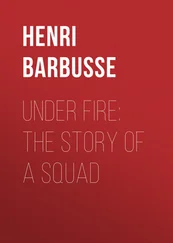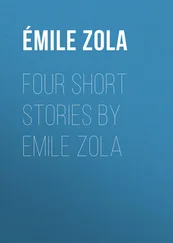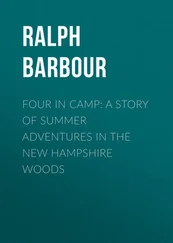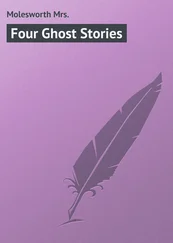David Means - Assorted Fire Events - Stories
Здесь есть возможность читать онлайн «David Means - Assorted Fire Events - Stories» весь текст электронной книги совершенно бесплатно (целиком полную версию без сокращений). В некоторых случаях можно слушать аудио, скачать через торрент в формате fb2 и присутствует краткое содержание. Год выпуска: 2012, Издательство: Faber & Faber, Жанр: Современная проза, на английском языке. Описание произведения, (предисловие) а так же отзывы посетителей доступны на портале библиотеки ЛибКат.
- Название:Assorted Fire Events: Stories
- Автор:
- Издательство:Faber & Faber
- Жанр:
- Год:2012
- ISBN:нет данных
- Рейтинг книги:4 / 5. Голосов: 1
-
Избранное:Добавить в избранное
- Отзывы:
-
Ваша оценка:
- 80
- 1
- 2
- 3
- 4
- 5
Assorted Fire Events: Stories: краткое содержание, описание и аннотация
Предлагаем к чтению аннотацию, описание, краткое содержание или предисловие (зависит от того, что написал сам автор книги «Assorted Fire Events: Stories»). Если вы не нашли необходимую информацию о книге — напишите в комментариях, мы постараемся отыскать её.
won a Los Angeles Times Book Prize, was nominated for a National Book Critics Circle Award, and received tremendous critical praise. Ranging across America, taking in a breathtaking array of voices and experiences, this story collection now stands as one of the finest of our time.
Assorted Fire Events: Stories — читать онлайн бесплатно полную книгу (весь текст) целиком
Ниже представлен текст книги, разбитый по страницам. Система сохранения места последней прочитанной страницы, позволяет с удобством читать онлайн бесплатно книгу «Assorted Fire Events: Stories», без необходимости каждый раз заново искать на чём Вы остановились. Поставьте закладку, и сможете в любой момент перейти на страницу, на которой закончили чтение.
Интервал:
Закладка:
David Means
Assorted Fire Events: Stories
To Genève
FOREWORDBY DONALD ANTRIM
This remarkable volume of stories, first published in 2000, lays out — in ways connected to what we might call, in the case of David Means’s work, authorial voice and attack — a new kind of territory , in which the physical world and the often dark and dreamlike states of being alive are merged. Means is unique, and he is a force — these stories are some of the strongest and most distinctive in our contemporary literature. Now they are being reissued, a gift for those already familiar with the work of David Means, as well as for readers coming to him for the very first time.
And just what is the territory that constitutes Means’s world? This is lonely America, the country found alongside abandoned train yards, or in the shadows of rusted factories, or on the quiet streets of Hudson River towns.
In Means’s America, a grieving man is kicked and beaten in a chance encounter with a group of young punks. Out of desperation, a woman shows her lover a honeymoon sex tape that she’d made with her late husband. A homeless man wanders into a wedding reception and changes the course of a marriage. A doctor questions the loss with age of his ability to diagnose his patients, or even himself: “Beneath him, life was giving way. Night was descending,” Means writes, and we know that this character inhabits and informs his creator, the writer in the act of finding and holding in mind his own amazement or exaltation over life.
Here, from “Coitus”—a story that only seems to be about a love affair — is a bit of the world as Means both sees and makes it: “The noon whistle breaks open and you can hear it spreading over the shimmer of the Hudson, the tide drawing in from the sea, the deep-cut river licking the Atlantic, the Atlantic licking up beneath the bridge now, the sound haunting along the other side, cresting over the hills that you see when you’re at the window of their room, French doors thrown open to a small tarred roof.” This description might be called painterly. But the painting is fractured and tragic. The descending and fully concrete imagery carries us, to the shrill music of a factory whistle, from the deep and open expansiveness of ocean and river to the private realm of French doors, and is characteristic of Means’s writing, his technique. The stories in Assorted Fire Events seem almost to emerge from the page, unwinding themselves into associative, incantatory strands of emotional monologue and (only apparent) digression into serpentine memory, building narrative power and a complexity that the author and his characters (and the willing reader), all working together, as it were, recognize as a kind of logic — even if lasting only a moment — a logic that both produces and expresses Means’s acute understanding of the meanings and consequences of living and of loving. And it is toward this psychological logic — toward fate — that the stories drive.
“Snag was sixteen or seventeen, with the face of a seventy-five-year-old beach bum. He had long hair that was clumped together with scalp oil, real oil, dirt and old vomit — what was left over from the old dreadlock thing he used to have. His eyes, if looked at long enough, solidified into something along the lines of ice cubes; in them one found the stiff coldness that comes from all the drugs, combined with the beatings his old man had given him.” It is impossible not to notice Means’s strong, organizing chains of commas and semicolons and dashes, which make possible both a compressed, lovingly intimate description of this young drifter — you can feel his soul — from “The Interruption”; and the depiction, in “Coitus,” of the distant, then increasingly close, world coming into view. Means has a style, in other words — that is, if style can be seen less as a decorated surface and more as what it is in the best sense: a communicated thought process.
Here is a passage from “The Gesture Hunter,” one of the later stories in the collection: “We are the graceless and dumbfounded, insane with our own insatiable desire for another time and place and a sense of movement, we gesture hunters. One movement of a tongue over a dry lip will do for us; a woman in the graveyard weeping at the foot of her husband’s grave, her navy blue skirt hiked up over her calves, and the flat worn soles of her shoes the color of dry sand — that’s just it, all we need, all we strive for in this world, nothing more or less.”
What are these lines really about, if not, in part at least, the patience and thoroughness in observation that is required of a writer, an artist? “A house is built from the outside in, but fire makes its way from the inside out, eagerly, until there is no more inside and just outside,” Means writes in the title story, and he could be referring to his own relationship to the act of writing.
These stories are passionate and essential, and, in their beauty and in their depth of intelligence, their peculiarly spiritual worldview and their courage in the face of mortality, they make pieces of life. This is David Means’s gift, in wildly gorgeous narrative, to a reader willing merely to perceive and to somehow feel, in the reading, the blurred and indistinctly merging barriers between the landscapes that produce us and the landscapes we produce. Assorted Fire Events brings together great stories by a great writer, and having them in this new edition is an affirmation not only of Means’s singular excellence, of the stories’ durability and their brilliance; it is a confident ratification of the deep and ultimately moving experience of reading him.
RAILROAD INCIDENT, AUGUST 1995
THE DECLIVITY where he sat to rest was part of a railroad bed blasted out of the hard shale and lime deposits cut by the Hudson River, which was just down the hill, out of sight, hidden by forestation, backyards, homes. The wind eased through the weeds, pressing on both sides of the track, died, and then came up again hinting of seaweed — the sea miles away opening up into the great harbor of New York, the sea urged by the moon’s gravity up the Hudson, that deep yielding estuary, and arriving as a hint of salt in the air, against his face, vised between his knees; he was tasting his own salt on his lips, for he’d been walking miles and it was a hot evening. He was a dainty man in a white dress shirt tucked into pressed jeans; he was the kind of man who had his jeans dry-cleaned; he was used to unwrapping his garments, chemically processed, creased, charted out, and sanitized, from long glimmering bags. Up the road five miles his dark blue BMW idled still — enough fumes to keep it going — parked far to the side of the shoulder so that it gave the appearance of being one of the many such cars, people up from the city for the summer night pausing to retrieve some lost memory or to taste the wooded air one more time before going home to the embrace of concrete. He was the kind of man who would leave his car running for the sake of appearances, to help lull an imaginary stranger into an illusionary sense of stability: all was right with the world, she would think, passing, going about her business; when he stumbled out of the car it was with her in mind — some strange woman passing on her way home — that he left it running.
Despite the aching in his feet from his awkward walk along three miles of railbed, he couldn’t help but notice, hunched over as he was, the splendor of this place in the world beneath a wide-open sky, darkness broken only by the passing of a car on the road above him; during his journey night had come down upon him slowly, hardening over the course of several hours; his eyes had adjusted to the darkness and guided him safely to this place. He extended his legs and began to take his shoes off, edging the heel with the back of the other shoe. (He was the kind of man who untied his shoes first, removed one and then the other, seated on the little stepstool or else the edge of his bed; he was also the kind of man who used an ivory shoehorn to get them on in the morning, relishing the feel of his sock sliding firmly against cool smoothness, the use of an instrument for the simple task.) But this wasn’t the time or the place for practiced rituals; he had come to betray himself, to rid himself of such things. He left them in the bushes, a lonely pair of fine, handmade Italians, one nestled against the other lovingly, front to front. He walked slowly.
Читать дальшеИнтервал:
Закладка:
Похожие книги на «Assorted Fire Events: Stories»
Представляем Вашему вниманию похожие книги на «Assorted Fire Events: Stories» списком для выбора. Мы отобрали схожую по названию и смыслу литературу в надежде предоставить читателям больше вариантов отыскать новые, интересные, ещё непрочитанные произведения.
Обсуждение, отзывы о книге «Assorted Fire Events: Stories» и просто собственные мнения читателей. Оставьте ваши комментарии, напишите, что Вы думаете о произведении, его смысле или главных героях. Укажите что конкретно понравилось, а что нет, и почему Вы так считаете.





